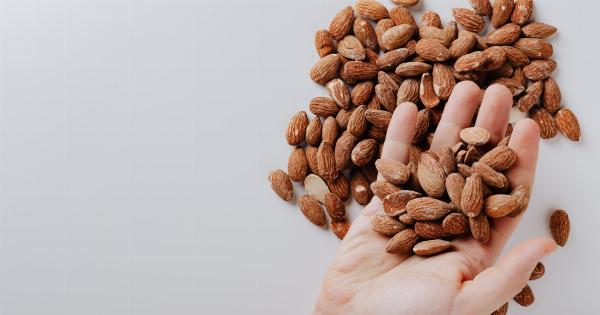Protein is an essential macronutrient required by our bodies for various functions, including muscle growth, tissue repair, and the production of enzymes and hormones.
Insufficient protein intake can lead to a host of health problems and can even be detrimental to our overall well-being. In this article, we will explore the tell-tale signs that indicate inadequate protein consumption and discuss ways to remedy this issue.
1. Fatigue and Lack of Energy
One of the primary signs of insufficient protein intake is feeling fatigued and lacking energy throughout the day.
Protein is responsible for providing our bodies with energy, and without an adequate amount, we may experience constant tiredness and a general lack of motivation.
2. Muscle Loss and Weakness
Protein plays a crucial role in building and maintaining muscle mass. When protein intake is inadequate, it can lead to muscle wasting and weakness.
If you notice a decline in your muscle strength or experience difficulty in performing tasks that were previously effortless, it may be due to insufficient protein consumption.
3. Slow Recovery from Injuries
Protein is essential for the repair and regeneration of tissues in our bodies. If you find that your injuries are taking longer than usual to heal, it could be a sign that you are not consuming enough protein.
Inadequate protein intake impairs the body’s ability to heal itself, leading to delayed recovery.
4. Hair, Nail, and Skin Problems
Protein is vital for maintaining healthy hair, nails, and skin. Insufficient protein intake can manifest as brittle hair, weak nails, and dry, dull skin.
If you notice these issues, it may be an indication that you need to increase your protein consumption.
5. Increased Cravings for Unhealthy Foods
Protein helps keep us feeling full and satisfied after meals. When protein intake is insufficient, we may experience increased cravings for unhealthy, calorie-dense foods.
This can lead to weight gain, poor nutritional choices, and a higher risk of developing chronic diseases such as diabetes and heart disease.
6. Poor Concentration and Brain Fog
Protein is involved in the production of neurotransmitters that regulate brain function. Inadequate protein intake can lead to poor concentration, impaired cognitive function, and brain fog.
If you find yourself struggling to focus or experiencing mental fatigue, it may be a sign of insufficient protein consumption.
7. Weakened Immune System
Protein plays a vital role in supporting a healthy immune system. When our bodies don’t receive enough protein, the production of antibodies and other immune cells can be compromised.
This makes us more susceptible to infections, illnesses, and prolonged recovery periods.
8. Changes in Mood and Emotional Well-being
Protein helps regulate the production of certain chemicals in the brain, such as serotonin and dopamine, which play a crucial role in mood regulation.
Inadequate protein intake can contribute to imbalances in these chemicals, leading to changes in mood, increased irritability, and reduced emotional well-being.
9. Slow Metabolism and Difficulty Losing Weight
Protein has a thermic effect, meaning it requires more energy to digest compared to carbohydrates and fat. Insufficient protein intake can result in a slower metabolism, making it more challenging to lose weight.
Additionally, protein helps maintain lean muscle mass, which is essential for a healthy metabolism.
10. Hormonal Imbalances
Protein is involved in the production and regulation of hormones in our bodies. Inadequate protein consumption can lead to hormonal imbalances, affecting various bodily functions, including reproductive health, sleep patterns, and mood.
If you experience irregular periods, disrupted sleep, or mood swings, it may be worth assessing your protein intake.
Remedies for Insufficient Protein Intake
If you identify with any of the signs mentioned above, it’s crucial to take steps to increase your protein intake. Here are some remedies to help you address insufficient protein consumption:.
1. Include Protein-Rich Foods in Your Diet
Incorporate a variety of protein-rich foods into your meals, such as lean meats, poultry, fish, eggs, dairy products, legumes, and nuts.
Choose high-quality sources of protein to ensure you’re getting all the essential amino acids your body needs.
2. Consider Protein Supplementation
If your diet alone cannot provide adequate protein, consider incorporating protein supplements such as whey protein, soy protein, or pea protein.
These can be convenient options to increase protein intake, especially for individuals with specific dietary restrictions.
3. Space Out Protein Intake Throughout the Day
Avoid consuming the majority of your protein intake in one meal. Instead, aim to distribute protein evenly throughout your meals and snacks to optimize digestion and absorption.
This also helps maintain a steady supply of amino acids in your body throughout the day.
4. Meal Planning and Preparing in Advance
Plan and prepare your meals in advance to ensure you have protein-rich options available throughout the day. This can help you avoid relying on convenience foods that are often low in protein and lacking in nutritional value.
5. Consult with a Registered Dietitian
If you’re unsure about your protein requirements or need personalized guidance, consider consulting with a registered dietitian.
They can assess your current diet, provide recommendations, and create a personalized meal plan to ensure you’re meeting your protein needs.
Conclusion
Insufficient protein intake can have various negative effects on our overall health and well-being. It’s essential to be aware of the tell-tale signs that indicate inadequate protein consumption and take the necessary steps to address it.
By incorporating protein-rich foods into our diet and making conscious dietary choices, we can ensure our bodies receive the protein they need to thrive.




























